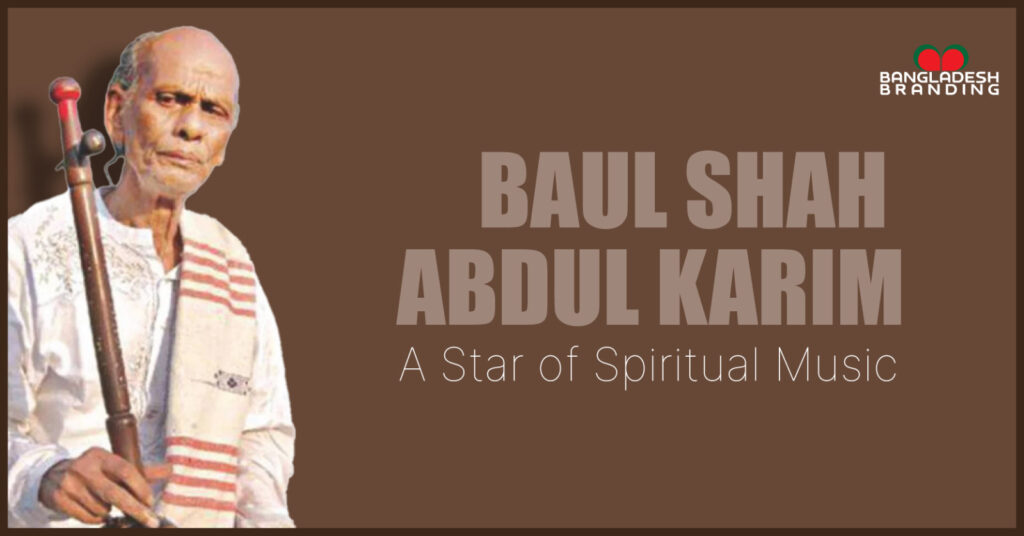Baul Shah Abdul Karim came from Madhupur village in rural Tangail, and lived a life steeped in the history of Baul culture. He grew up in a musical household. Karim had been raised in a rural area, and his songs frequently reflected his respect for the natural spirits.
Karim’s life was not without challenges. He had to deal with illness, destitution, and upheaval in his lifetime. His unswerving determination for music and faith, however, never broke. This demonstrates people’s resilience and ability to find meaning in life despite adversity.
Popular Hits and Music Style
Karim’s songs combined traditional Baul songs with his own compositions, often exploring themes of love, loss, spirituality, and social issues. Some of his most iconic songs include: — Moner Manik (Jewel of the Heart): A plaintive song about love and longing. — Amar Praner Manush (The Person of My Life): A soulful tribute to a beloved — Tumi Amar Jibon (You Are My Life): A declaration of love and devotion.
Fans of all ages were moved by Karim’s distinct style, which was defined by his soulful voice, complex guitar, and introspective lyrics.
Lifestyle and Beliefs
Karim lived as a Baul, traveling from village to village, spreading spiritual wisdom through music. The Baul school of thought, which emphasized self-realization through discipline, love, and harmony with nature, served as the basis for his beliefs. His music often reflected his spiritual journey and belief that everything is interconnected.
Career and Recognition
Karim earned high regard throughout his career, performing at numerous festivals and concerts domestically and internationally. Through movies and documentaries, his music was heard by a wider audience. In Bangladesh, he was adored for his devotion to the Baul tradition and his capacity to emotionally engage audiences. Throughout his career, he was recognized numerous times for his contributions to music and culture.
Impact and Legacy
Baul Shah Abdul Karim’s legacy extends beyond his lifetime. His music continues to inspire and uplift people, and his lessons remain timeless. He significantly influenced Bangladeshi music as well as the Baul tradition.
Karim’s songs serve as a reminder that music has the power to bridge gaps and unite people on a spiritual level. His legacy demonstrates the beauty and relevance of the Baul tradition over time.

